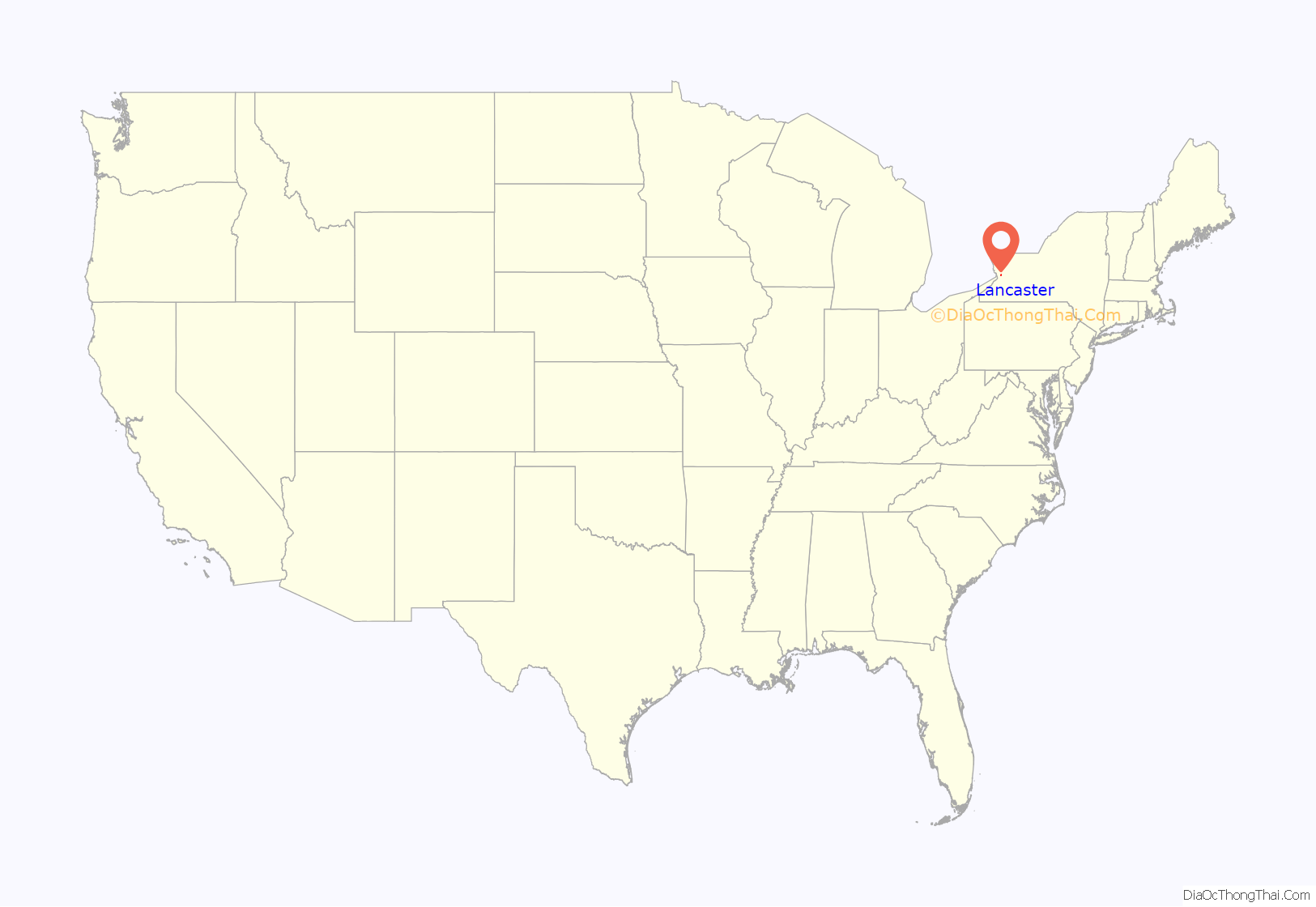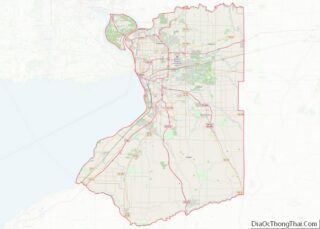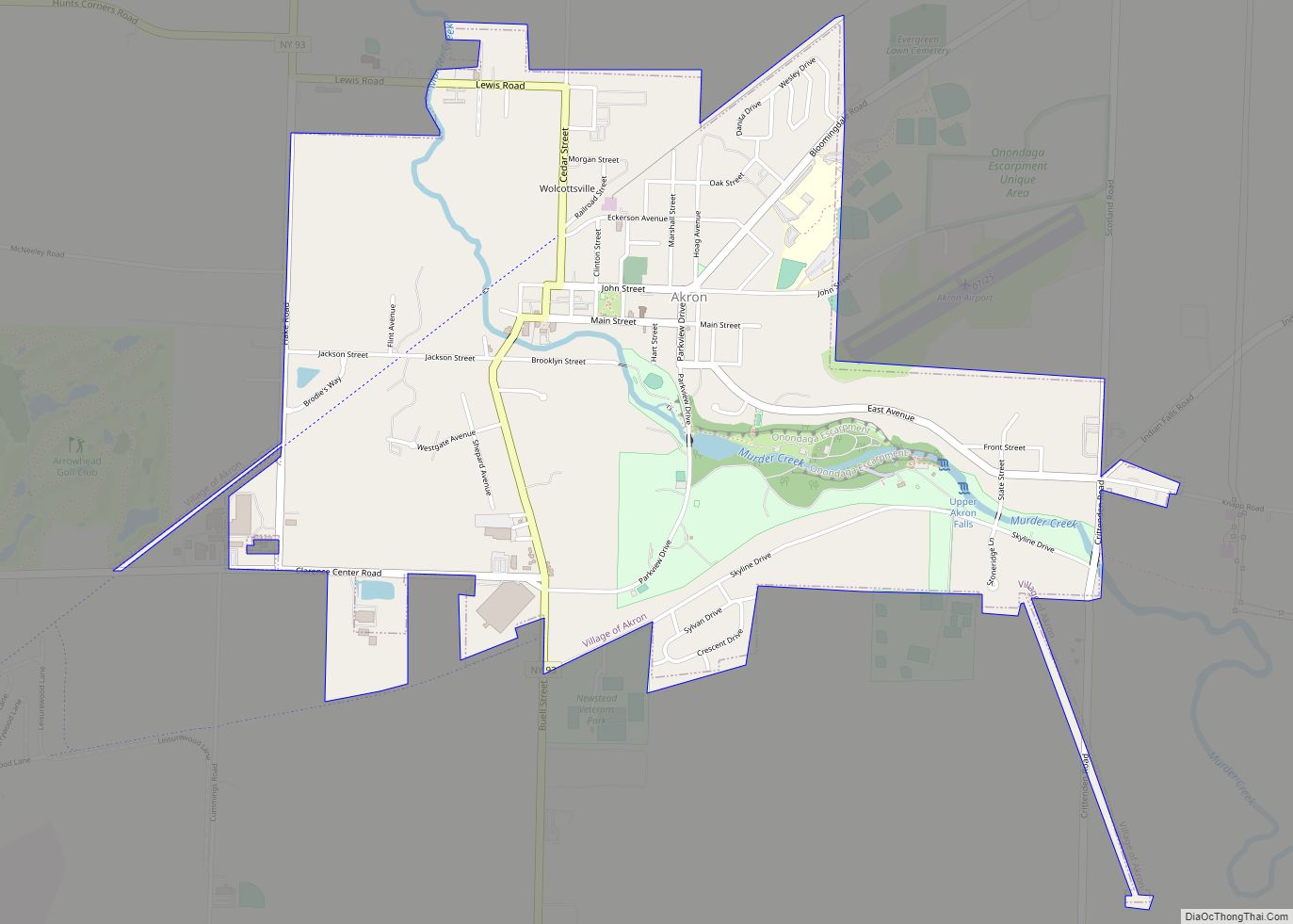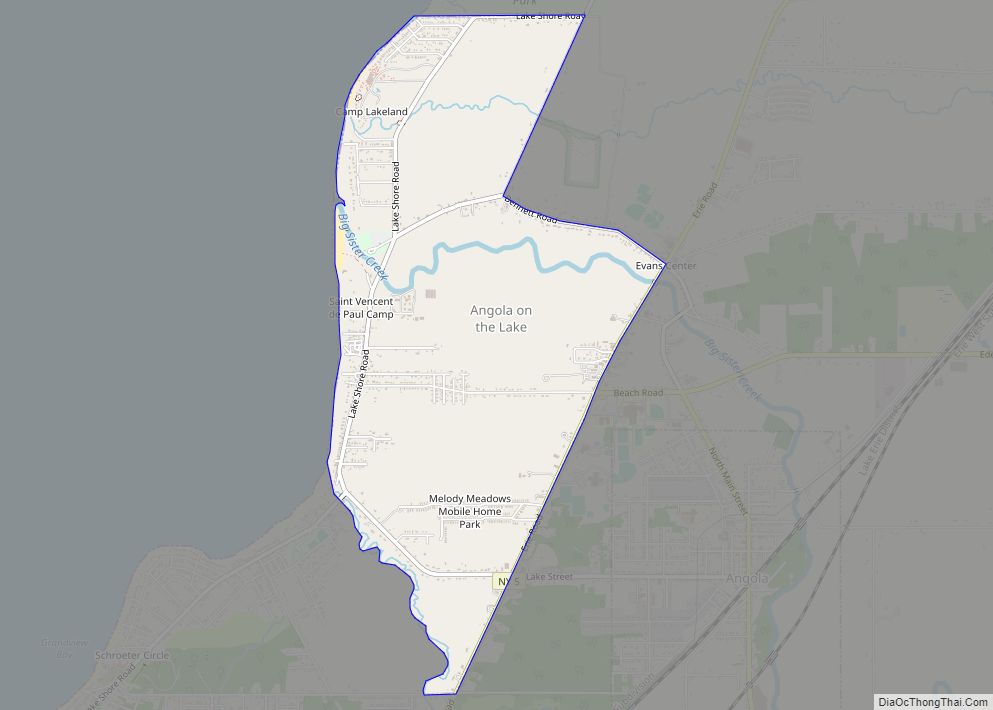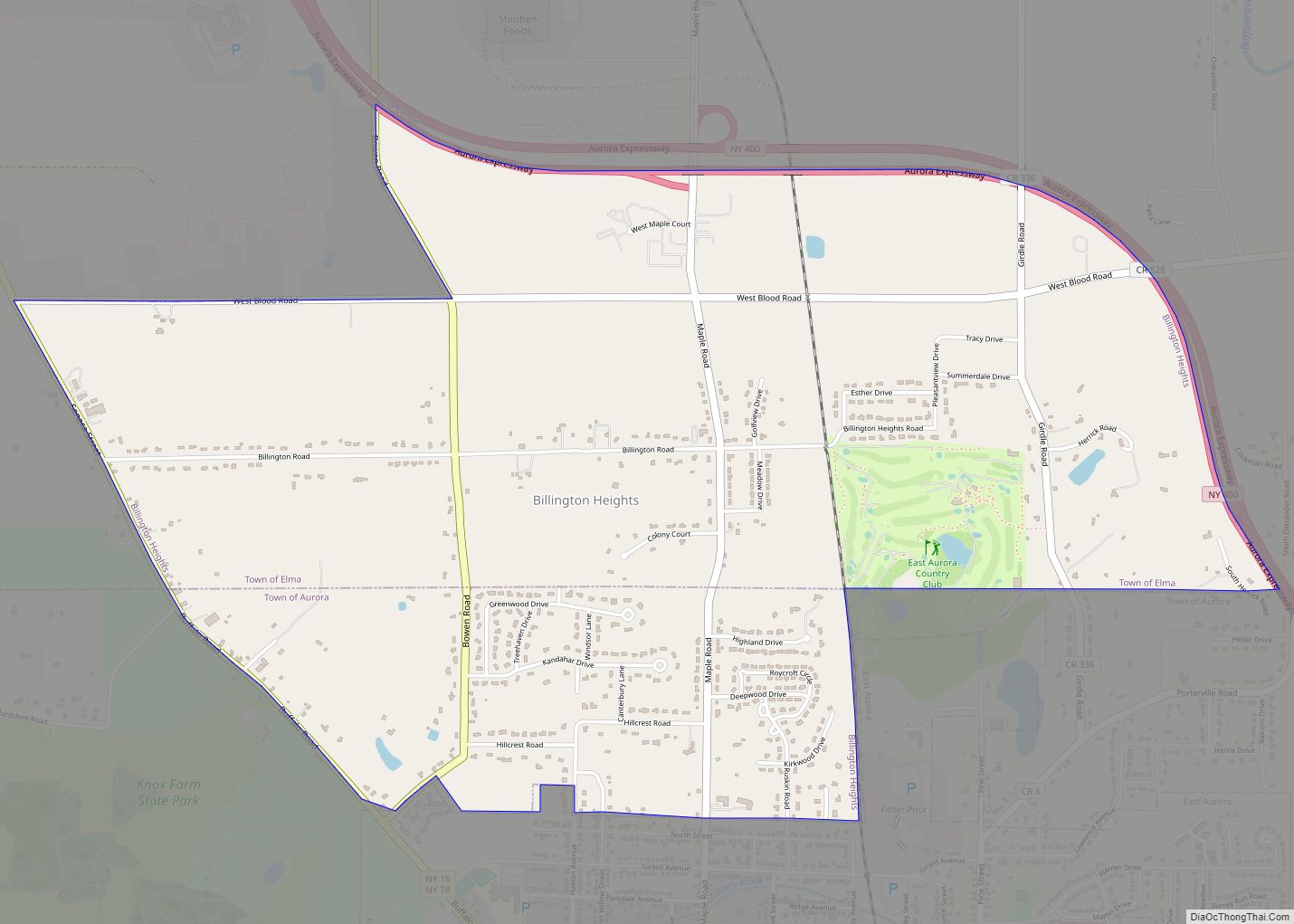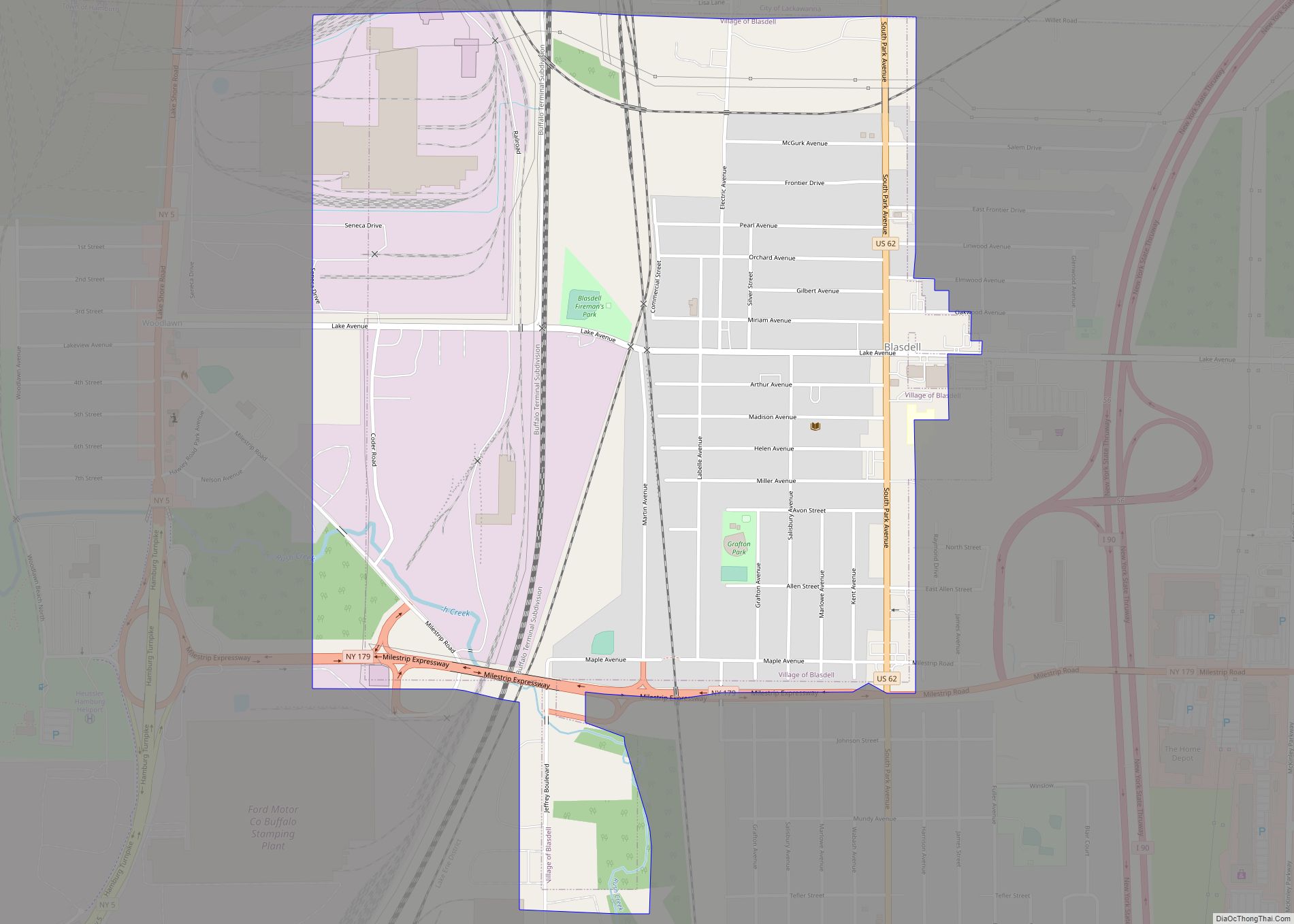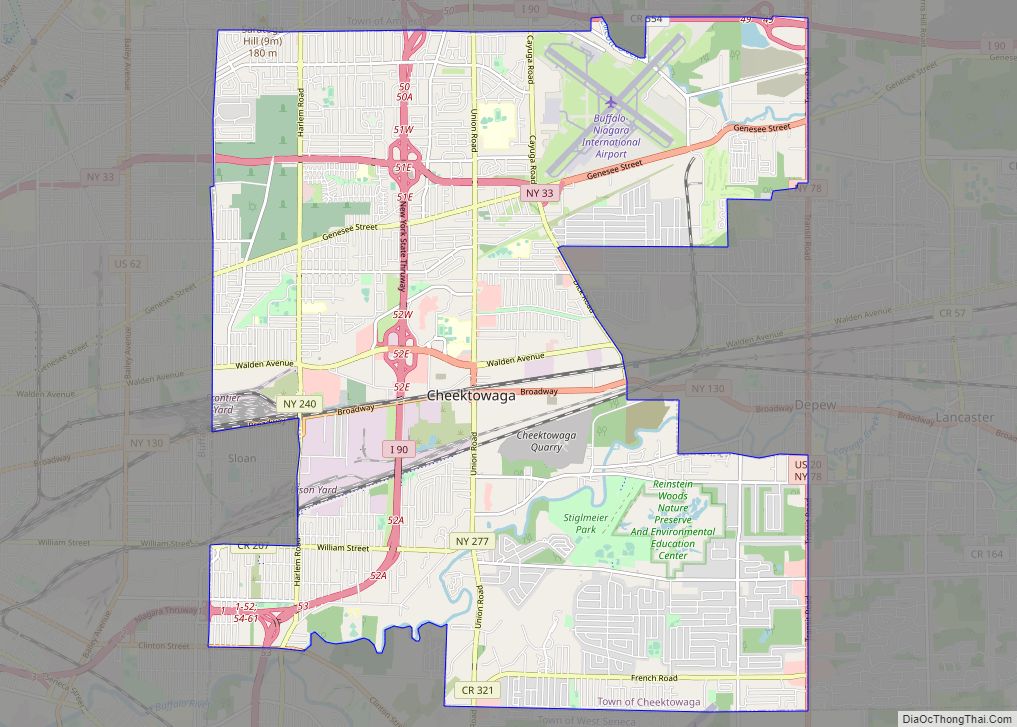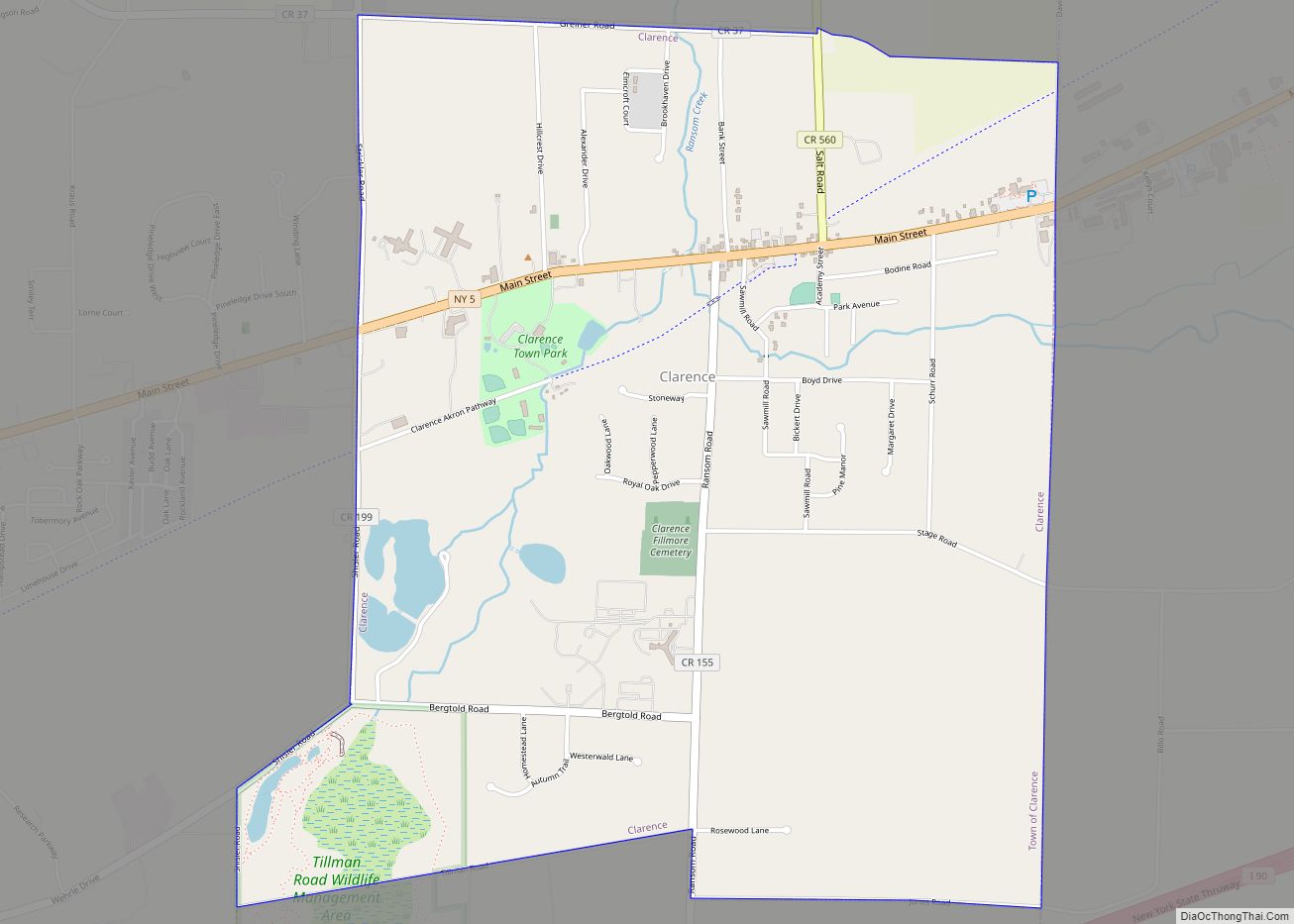Lancaster is a village in Erie County, New York, United States. As of the 2010 census, the village population was 10,352. It is part of the Buffalo–Niagara Falls Metropolitan Statistical Area.
The village of Lancaster is in the west part of the town of Lancaster and is east of Buffalo.
The Lancaster Opera House is locally famous for its musicals and stage plays. The current mayor is Lynne T. Ruda.
| Name: | Lancaster village |
|---|---|
| LSAD Code: | 47 |
| LSAD Description: | village (suffix) |
| State: | New York |
| County: | Erie County |
| Incorporated: | 1849 |
| Elevation: | 673 ft (205 m) |
| Total Area: | 2.75 sq mi (7.13 km²) |
| Land Area: | 2.72 sq mi (7.04 km²) |
| Water Area: | 0.03 sq mi (0.09 km²) |
| Total Population: | 10,027 |
| Population Density: | 3,689.11/sq mi (1,424.27/km²) |
| ZIP code: | 14086 |
| Area code: | 716 |
| FIPS code: | 3641135 |
| Website: | www.lancastervillage.org |
Online Interactive Map
Click on ![]() to view map in "full screen" mode.
to view map in "full screen" mode.
Lancaster location map. Where is Lancaster village?
History
The Village of Lancaster was incorporated in 1849 from part of the town of Lancaster. Lancaster is the third oldest incorporated village in Erie County, behind Springville and Gowanda. The village is proud of its historic past and emphasizes preservation of its historic buildings. Lancaster was formerly known as “Cayuga Creek”. Lancaster is one of approximately 30 communities in New York with historic districts.
The oldest house in the village is the Carpenter–Draper House, built in 1831. The Lancaster Presbyterian Church is the second oldest religious structure in Erie County, built in 1832.
Churches in the village include Lancaster Presbyterian Church, St. John’s Lutheran, Trinity Episcopal, and Faith United Methodist. Catholic churches include St. Mary of the Assumption and Our Lady of Pompeii.
In 1894 the Lancaster Opera House was built. This building is still the main focus of the downtown Lancaster area because of its massive size and its clock tower. Lancaster Town offices are located in the building. This leads people to call the building both the Opera House and Town Hall.
The Central Avenue/Broadway area is the downtown business area in the village. The former West Main Street was at one time another major business street in the downtown area. However, today very few businesses are located on the street due to its demolition in the early 1970s. In the near future, West Main will be re-extended all the way to the intersection of Aurora, North Aurora, and St. Mary’s streets, as it had before the demolition.
Four railroads (Erie RR, Lehigh Valley RR, Delaware, Lackawanna and Western RR, and New York Central RR) once traversed the village, but only two remain. The fifth railroad in the town of Lancaster, the West Shore RR, did not go through the village, but did have a station in Bowmansville, a hamlet in the northwestern part of the town. Each railroad had a station on Central Ave.
A trolley once went through the village, down Como Park Boulevard from Buffalo, to Lake Avenue, to Church Street, to East Main Street (now Broadway), to Central Avenue, and then finally to Sawyer Avenue. The trolley then continued into the connecting village of Depew, where Sawyer Avenue turned into Main Street.
Several fires have caused damage over the years to the downtown area. The Great Fire of 1894 destroyed much of the west side of Central Avenue and the Grimes-Davis Mansion, which stood at the corner of Broadway and Central Avenue. A gas station now occupies the site.
The village includes part of Como Lake Park, owned and operated by Erie County
Church Street, a street off Broadway, contains many architecturally significant homes.
Lancaster’s first immigrants were Dutch. Germans came in the mid-1800s, who founded St. Mary of the Assumption Catholic Church. Italian immigrants were the last to populate the village area. They founded Our Lady of Pompeii Catholic Church.
St. John Neumann was a circuit priest in the mid-1800s around the Buffalo area. St. Mary of the Assumption Church (St. Mary’s on the Hill) was one of his stops. He celebrated mass there once a month. St. John Neumann played a big part in the building of the church and school.
Lancaster Road Map
Lancaster city Satellite Map
Geography
Lancaster is located at 42°54′1″N 78°40′22″W / 42.90028°N 78.67278°W / 42.90028; -78.67278 (42.900408, −78.67303), on Cayuga Creek and U.S. Route 20 (Broadway). The village’s northern boundary is Walden Avenue, the eastern edge is Walter Winter Road, and the southern edge is the northern boundary of the former Buffalo Creek Indian Reservation. The western boundary is a former farm-lot line which is now Brunswick Road.
According to the United States Census Bureau, the village has a total area of 2.7 square miles (7.1 km), of which 2.7 square miles (7.0 km) is land and 0.04 square miles (0.1 km), or 1.24%, is water.
See also
Map of New York State and its subdivision:- Albany
- Allegany
- Bronx
- Broome
- Cattaraugus
- Cayuga
- Chautauqua
- Chemung
- Chenango
- Clinton
- Columbia
- Cortland
- Delaware
- Dutchess
- Erie
- Essex
- Franklin
- Fulton
- Genesee
- Greene
- Hamilton
- Herkimer
- Jefferson
- Kings
- Lake Ontario
- Lewis
- Livingston
- Madison
- Monroe
- Montgomery
- Nassau
- New York
- Niagara
- Oneida
- Onondaga
- Ontario
- Orange
- Orleans
- Oswego
- Otsego
- Putnam
- Queens
- Rensselaer
- Richmond
- Rockland
- Saint Lawrence
- Saratoga
- Schenectady
- Schoharie
- Schuyler
- Seneca
- Steuben
- Suffolk
- Sullivan
- Tioga
- Tompkins
- Ulster
- Warren
- Washington
- Wayne
- Westchester
- Wyoming
- Yates
- Alabama
- Alaska
- Arizona
- Arkansas
- California
- Colorado
- Connecticut
- Delaware
- District of Columbia
- Florida
- Georgia
- Hawaii
- Idaho
- Illinois
- Indiana
- Iowa
- Kansas
- Kentucky
- Louisiana
- Maine
- Maryland
- Massachusetts
- Michigan
- Minnesota
- Mississippi
- Missouri
- Montana
- Nebraska
- Nevada
- New Hampshire
- New Jersey
- New Mexico
- New York
- North Carolina
- North Dakota
- Ohio
- Oklahoma
- Oregon
- Pennsylvania
- Rhode Island
- South Carolina
- South Dakota
- Tennessee
- Texas
- Utah
- Vermont
- Virginia
- Washington
- West Virginia
- Wisconsin
- Wyoming
